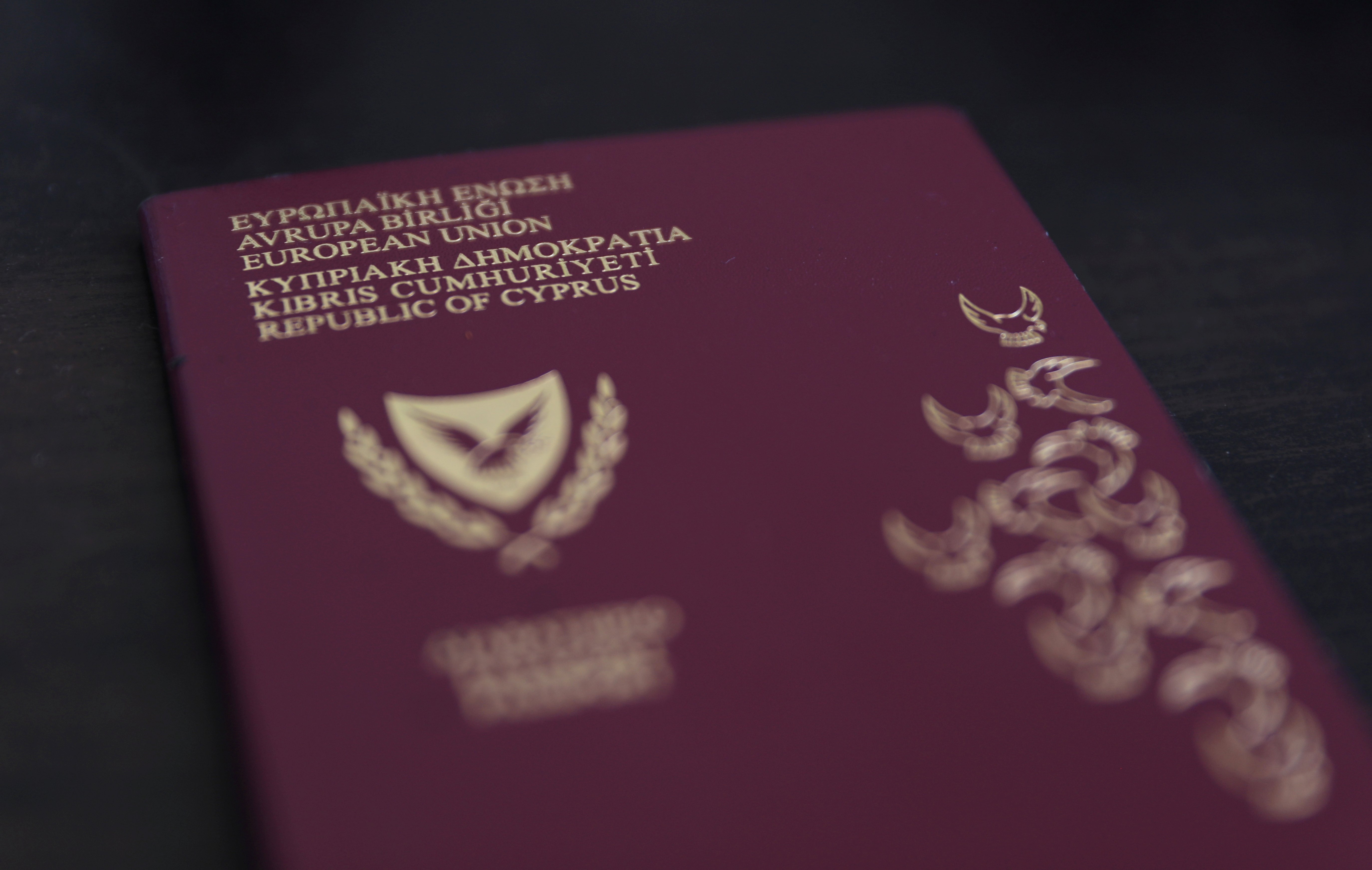A senior government official said Tuesday that three individuals subject to EU sanctions in relation to Russia’s invasion of Ukraine hold a Cyprus passport, adding that checks are ongoing, while the accountants association asked its members to comb through their clients list to make sure they are in compliance.
Giorgos Panteli, permanent secretary at the finance ministry, had earlier told the state broadcaster that one of the some 850 Russians and Belarusian nationals on the EU sanctions list holds a Cypriot passport.
He also stressed that, under the European Commission’s recommendation – issued a day earlier – revoking naturalisation must be done with due process and according to the laws of the member-state in question – meaning that a passport could not be voided automatically.
The official said the finance ministry operates two committees that handle sanctions-related matter.
One committee deals with sanctions concerning financial institutions; the other committee monitors any other restrictions applicable to legal entities or individuals.
Asked about how many persons cited on sanctions list authorities here have had their assets frozen, Panteli said instructions have been issued to banks as well as to state services and regulators to implement the sanctions.
But, he added, so far there are no data on how many persons any such measures have been taken.
At this time the finance ministry is gathering data from all involved agencies in order to gain a complete picture about the persons subject to sanctions and to “create a list” that authorities will hand over to the European Commission.
But contacted by the Cyprus Mail later in the day, Panteli clarified that the person cited as having Cypriot citizenship and said to be included on the EU Council’s sanctions list – created in March 2014 and since expanded upon following the events in Ukraine – is in fact a Belarusian national.
This, Panteli explained, is what President Nicos Anastasiades had in mind when on Monday he spoke of one person having been identified as having a Cypriot passport.
But this person had been included on the EU list as part of previous sanctions, and not relating to the current Ukraine situation.
Asked how many persons Cypriot authorities have so far identified in relation to the Ukraine-specific restrictions, Panteli said they have found three Russian nationals.
He could not confirm whether they are resident in Cyprus. Authorities are checking whether these persons own assets and have accounts here.
The EU list (https://eur-lex.europa.eu/eli/dec/2014/145(1)/) currently includes 893 persons and 65 entities.
One Russian national, named Dmitry Arkadievich Mazepin, is listed as having business interests in Cyprus.
Mazepin is the owner and CEO of the mineral fertiliser company Uralchem. Uralchem Group is a Russian manufacturer of a wide range of chemical products, including mineral fertilisers and ammoniac saltpetre.
According to the accompanying note, “In December 2021 Dmitry Mazepin rewrote his Cyprus-based companies Uralchem Holding and CI-Chemical Invest, controlling ‘Uralchem’, to Russian jurisdiction at special administrative district on Oktyabrsky Island of Kaliningrad Oblast.”
It was unclear whether this individual holds a Cyprus passport. Panteli could not confirm when the Cyprus Mail queried about this.
Meantime the Institute of Certified Public Accountants has asked accounting and audit firms to go through their databases and notify it immediately on whether any of their clients are on the sanctions list.
In a circular released Monday, the institute advised its members that they must alert it about “a true match” without delay.
The body reminded members of their obligations arising from UN Security Council resolutions and EU directives in terms of sanctions relating to Russia’s invasion of Ukraine.
Audit firms must disclose any such information by April 4 at the latest.
According to the advisory’s wording, the data that must be relayed to the institute include “either knowledge or suspicion supporting the conclusion of the existence of a true match”.
If a match is made, firms must provide “all information in relation to the designated person”.
They must also report all information regarding the nature, the amount and the quantity of the funds and financial resources which they hold in the name of the designated (sanctioned) person, including details of the assets, name and address of the owner, as well as details on “every attempted transaction relating to the assets.”
Firms should additionally provide information on any “corporate vehicles which directly or indirectly belong to the designated person”.
On Monday, Brussels recommended to EU member-states that they examine all citizenships and residency permits given to Russian or Belarusian nationals “significantly supporting the war in Ukraine.”
It further called on member-states to immediately end national citizenship-via-investment schemes.
The European Commission also recommended that member-states assess whether citizenship granted previously under a ‘golden passport’ scheme to Russian or Belarusian nationals are on an EU sanctions list in connection to the war in Ukraine.
These should be withdrawn, the EU said.
In November 2020 Cyprus nixed its citizenship-by-investment programme. Shortly after, the government rolled out a new scheme for permanent residency; this had already existed but was revised and expanded.







Click here to change your cookie preferences